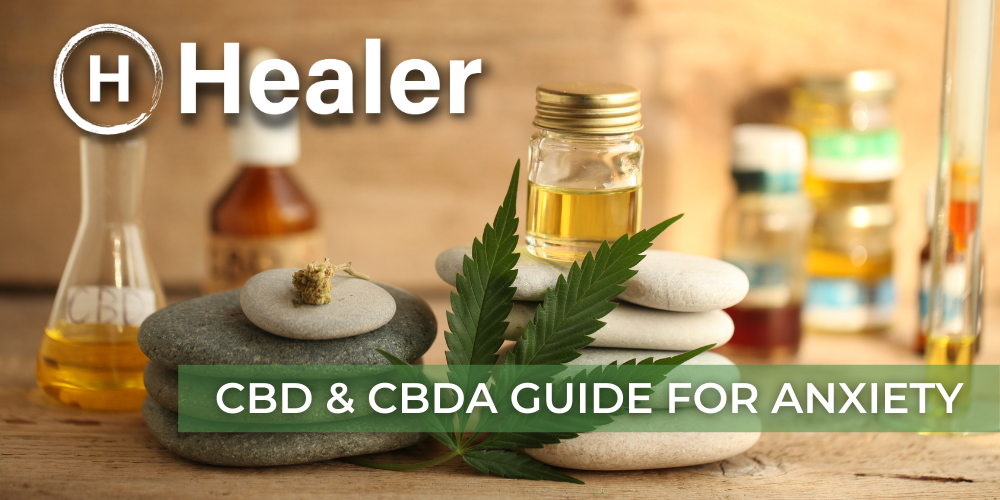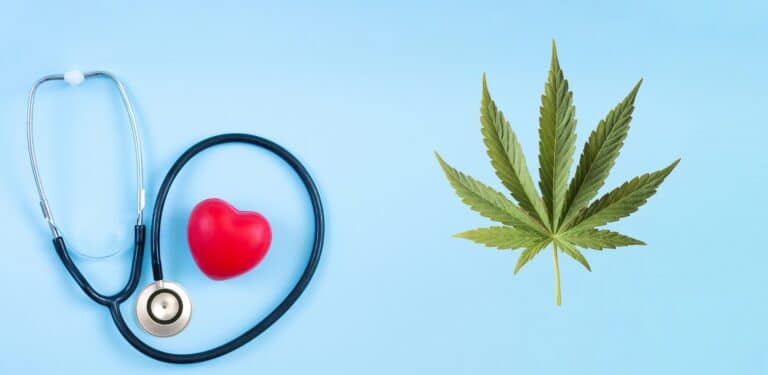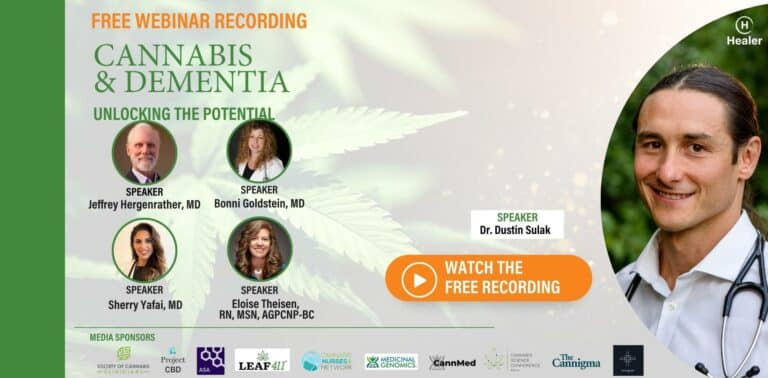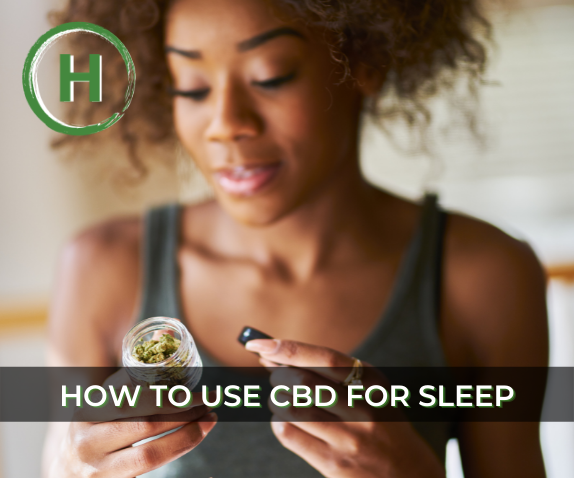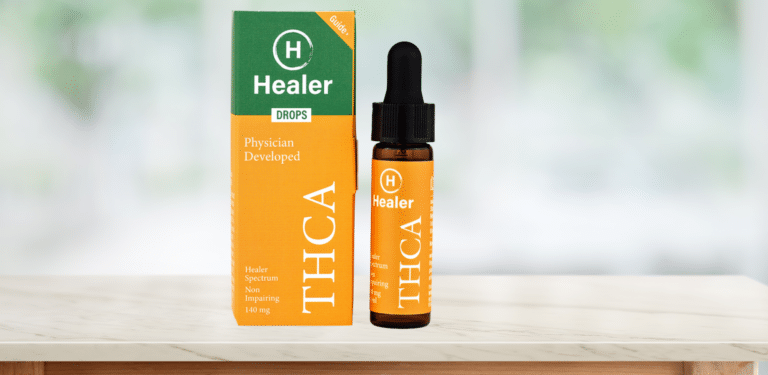Research indicates that CBD has an anxiolytic effect, meaning it decreases anxiety. CBD may benefit some people with anxiety disorders, and it may be useful in helping people reduce anxiety associated with episodic, stressful situations. Here is everything you need to know about using CBD for anxiety.
Watch Dr. Sulak review current research on CBD for the treatment of anxiety here.
However, if you have not experienced the power of CBDA (and most people haven’t because CBDA is not included in most products that are manufactured with heat), this guide will explain what we are now learning about this powerful minor cannabinoid and how it can work together with CBD or in place of CBD to address and prevent symptoms.
Does CBD help with anxiety?
Anxiety is the most common reason for which Dr. Sulak uses CBD in his clinics. In addition to CBD’s influence on the endocannabinoid system (ECS), which likely accounts for some of its anti-anxiety effects, CBD also hits non-ECS targets. For example, CBD is a serotonin receptor agonist. Serotonin is the neurotransmitter that’s related to happiness and feeling of contentment, and also plays a major role in anxiety as well as nausea. CBD activates that receptor similarly to the neurotransmitter serotonin — another reason why CBD can be so helpful with anxiety, focus, and other aspects of mental health.
CBD is widely recognized as safer than benzodiazepine drugs like Ativan or Valium, and if it works, it will likely start working much faster than SSRI antidepressants. Patients who don’t respond fully to CBD-dominant treatments may find more relief with combination CBD + THC.
There is also some evidence-based on animal models that CBDA is stronger and more potent than CBD, not just because it’s getting absorbed better but because it’s acting more powerfully. For example:
- CBDA has a higher bioavailability in humans, with 5-11x better absorption in humans than CBD when taken orally [1]. Animal studies have found CBDA to be 10 times more potent than CBD in a model of seizures [2], 100x more potent in a model of inflammatory pain [3], 10,000x more potent in a model of nausea [4], and 50,000x more potent in a model of anxiety [5].
Here’s the bottom line regarding CBD formulations and anxiety:
- CBD formulations that include the legally allowed amount of THC are more effective and at lower doses
- CBD formulations that include CBDA –with or without THC– may be more potent and effective as well.
How to use CBD for anxiety
Many of Dr. Sulak’s patients who use CBD to treat anxiety report that once they get to a high enough dose they experience a decrease in anxiety without the sedation and confusion that are typical of regular anxiety medications. They also report feeling they can remain mentally sharp and focused without the crippling anxiety.
The key to achieving successful results with CBD is using an appropriate amount, with the widest array of plant compounds including CBDA, tailored to your individual needs. This means in order to get the maximum benefit from CBD, you must find your personal optimal dosage amount and the frequency with which you need to take it. Furthermore, using a formulation that includes significant amounts of CBDA and/or the legal amounts of THC makes the CBD more powerful, so you’ll need less.
LEARN MORE: CBD VS CBDA: WHAT IS THE DIFFERENCE & WHAT IS BEST FOR ME
CBD oil for anxiety
For treating and preventing anxiety symptoms, CBD oil (placed under the tongue) is typically the best method of delivery. Some of the medicine can be absorbed directly through the capillaries in your mouth, and the rest that’s swallowed can be absorbed in the digestive tract. Importantly, the medicine that reaches the gut can be absorbed 4-5x more if it’s taken around the time of a fat-containing meal.
CBD cream for anxiety
Most people don’t know that CBD drops can be applied directly to the skin as a topical. While these and other lotions, salves, balms, or gel preparations, can be applied to help alleviate pain, muscle spasms, inflammation, and various skin conditions, it is not often used for anxiety. However, some patients find themselves in a cycle of anxiety and muscle tension, and by rubbing CBD products directly into the temples, TMJ, back of the neck, and other areas of tension or pain, they’re able to relax both body and mind.
CBD edibles for anxiety
When taking drops sublingually (under the tongue) isn’t possible, adding them to food —or taking CBD and/or CBDA in gummy or other edible forms— is also effective. Results may take longer –so take them earlier and you may need to take an even larger amount, as the CBD passes through the digestive system first, which affects onset and potency. If capsules or other edibles take too long to start working, or not working well even in moderate to high doses, or for people with poor gut motility, try switching to drops.
Taking CBD and/or CBDA edibles or capsules with a meal or snack that contains some fat can increase absorption up to 5-fold, making the treatment more powerful and less expensive.
CBD capsules for anxiety
Depending on your optimal usage amount, capsules may be the most convenient and longest-lasting method when used for anxiety. However, if your CBD capsules and other edible forms take too long to start working, are not working well even in moderate to high doses, or for people with poor gut motility, try switching to drops.
CBD Dosage Guide | How to Use CBD for anxiety
Cannabis, including hemp-based CBD products, affects everyone differently. Achieving the best results is based on finding your optimal usage amount and frequency. While Dr. Sulak is a proponent of using very low doses to treat medical conditions, when effective, he supports using high doses of CBD if needed, especially when it’s used in the absence of significant quantities of CBDA or THC.
Why? Milligram per milligram, CBD is much less potent than CBDA or THC at relieving symptoms. For example, someone who experiences relief with just 3-5 mg of THC or 10 mg of CBDA may require 15 to 100 mg of CBD to produce similar results.
Take CBD during the morning and throughout the day as needed to address your symptoms. Because the effects of CBD can be subtle at first, it’s important to always check in with your body and your mind before and 1 hour after taking your product and record your results. It’s also important to remember that some people may feel relief faster than others and that results can build over time.
How to take CBD Oil for Anxiety:
Administering CBD or CBDA oil sublingually ensures faster, more efficient absorption. CBD and CBDA oils are even better absorbed — resulting in a stronger effect– when taken after a meal containing some healthy fat or oil.
If you’re a beginner (have never used CBD, CBDA or have used it occasionally):
- Shake the bottle to make sure the cannabinoids and other beneficial plant compounds are well distributed for an even and consistent dose.
- Start with 5 mg placed under your tongue. Looking in a mirror can help you count the drops or administer by first placing drops on a spoon, or use an oral syringe.
- Hold the drops there for as long as you can (1-5 minutes) before swallowing to allow maximum absorption.
- Increase your daily usage by 5 mg every 2 days. When you start feeling results, stop increasing and keep the same number of drops peruse.
- If you notice that the effects wear off too early in the day after taking an amount that works well for you, it’s beneficial to add more uses per day. Many people do well taking CBD for anxiety 2-3 times daily.
How to use CBD or CBDA Capsules for Anxiety
To get started using CBD or CBDA capsules is simple:
Day 1 & 2:
– Take 1 capsule by mouth 1-3x per day, waiting 4-5 hours between doses
After Day 2:
– Increase by 1 capsule every two days until you experience satisfactory benefits.
– If you notice unwanted effects or fewer benefits, reduce the amount by 1 capsule each day until you find your optimal response.
– If 1 capsule is too strong or if you experience inconsistent results, switch to CBD or CBDA oil taken sublingually.
How to Choose the best CBD for anxiety relief
CBD and CBDA products vary widely in their potency, purity, and safety. Unfortunately, several scientific studies and investigative reports have found inaccurate labeling and contamination with pesticides, heavy metals, and other toxins in ~50% of the products tested. Furthermore, even many of the good quality products have confusing labels that make it hard to know how much CBD and CBDA are in each serving.
Few CBD products contain significant levels of CBDA, CBD’s precursor, and hemp-derived terpenes – both will likely improve the effectiveness of the product. CBDA acts similarly to CBD at many of its targets in our body but has been shown to be better absorbed and more potent in several experiments.
Before purchasing a CBD product you intend to use for anxiety, be sure to look at the certificate of analysis (COA), a test result from a third party laboratory that details the content of CBD and other cannabinoids (like CBDA) and terpenes, and freedom from contamination with heavy metals and pesticides. Be sure the COA has a date and batch number that matches the product for sale. Look at the label of the product and make sure it’s easy to understand the number of mg of CBD per drop or capsule and be wary of labels that only describe the amount of “hemp oil” or “hemp extract” – the CBD content could vary widely.
[1] Pellesi, Lanfranco, et al. ” European Journal of Clinical Pharmacology 74.11 (2018): 1427-1436.
[2] Anderson, Lyndsey L., et al. Journal of natural products 82.11 (2019): 3047-3055.
[3] Rock, Erin M., et al. Psychopharmacology 235.11 (2018): 3259-3271.
[4] Rock, E. M., et al. British Journal of Pharmacology 169.3 (2013): 685-692.
[5] Rock, Erin M., et al. Psychopharmacology 234.14 (2017): 2207-2217[
USE CBD FOR PAIN
USE CBD FOR SLEEP
BENEFITS OF CBDA
© 2024 Healer. All rights reserved.
Site by CannaPlanners
